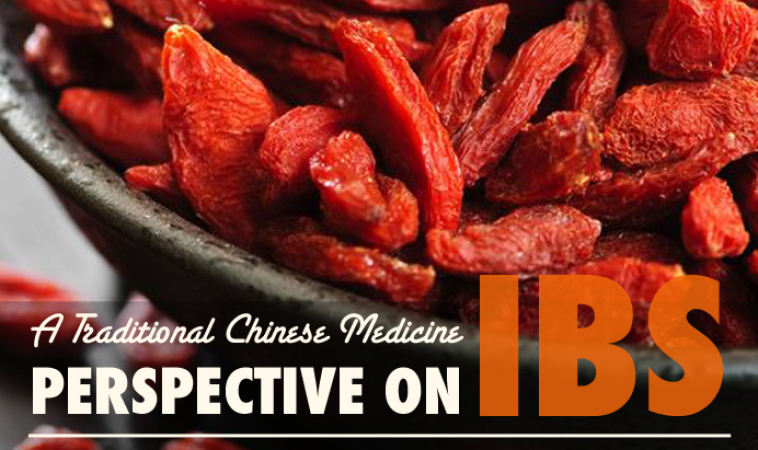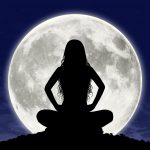Irritable bowel syndrome is a common condition with no known cause in western medicine. This pattern has long been recognized in Traditional Chinese Medicine (TCM) and TCM explains that there are several factors which contribute to and promote this disorder.
Viewing IBS in TCM terms
If you were to describe IBS in Chinese medicine terms, it would most commonly be referred to as “liver qi stagnation.” So what is liver qi stagnation?
To start with, the liver channel represents a variety of concepts. It represents both the physical channel, which can be found on the human body and the environmental factors that affect this channel such as the emotion anger or frustration, the season of springtime, and sour foods. The liver is also called “The General,” with the task of keeping emotions and basic bodily functions flowing smoothly.
The physical channel correlates in part to the neurological and endocrine systems – systems that have documented effects on digestion. The environmental factors, which are many, represent the holistic paradigm of health and wellness which require balance not just internally but externally as well. The external being in relation to other human beings and the environment.
When any one of these factors is out of balance, the qi flowing through this channel “stagnates” and causes bloating, irritability, pain, low appetite and constipation alternating with loose stool.
Causes of IBS
With our short primer on the Chinese perspective, what can we say causes or contributes to IBS?
IBS or “liver qi stagnation” often begins with a poorly functioning endocrine or neurological system – as seen in, for example, a certain subset of depressed patients who produce less of the neurotransmitter serotonin.
Hereditary factors – such as a family predisposition to IBS stem from what the Chinese view as a congenital “liver deficiency,” where one or both parents had depleted their liver reserve and passed on less than an ideal reserve for their children. This leaves the individual with a lower threshold for irritability to stress and stimuli. The liver’s “General” function is compromised and less able to maintain control.
Thus, IBS can be compounded caused by anger or frustration – especially as it relates to one’s goals. Stress of any kind can lead to this kind of frustration as well. Unfortunately, patients are often further frustrated by a lack of correlation with food choices. Though certain foods deplete the liver’s ability to function such as alcohol (which we know to be damaging to the neurological system), the Chinese see this condition not as one of excess or an inflammatory response to food but rather from a deficiency of the liver qi.
Thankfully, though the interactions are complex – the Chinese see this condition as one primarily rooted in deficiency and “loving your liver”can go a long ways to keeping your IBS in check.
Treatment for IBS
Treating IBS requires a nourishing diet, regular exercise, plenty of rest, sleep and is very effectively treated with acupuncture and Chinese herbal therapies.
One dietary strategy includes eating a small amount of “sour” foods such as goji berries or tart cherries on a daily bases as well as “dispersing” spicy foods such as cayenne peppers or chai tea.
A regular routine that includes plenty of preparation will help the IBS-prone individual avoid frustrating situations that further tax his or her ability to deal with stress.
Resting in addition to sleeping is an often overlooked priority in our harried, stressed-out culture. Building patience requires patience first with yourself and allowing your body to build back its resources. Resting means non-sleep time devoted to spending time with friends or leisurely activities.
Acupuncture provides both short- and long-term benefits for IBS patients. In the short-term, patients often experience immediate relief of symptoms. In the long-term, neurological function is being stimulated toward “rest and digest” mode, allowing for the body to repair and rebuild.
Chinese herbs, which should be taken on the advice of a Chinese herbalist, assist the liver in rebuilding and regulating qi so that it no longer “stagnates,” promoting the vicious cycle of frustration and more frustration.
Summary
The variable nature of IBS symptoms points to a lack of internal regulation. The body’s ability to digest food, information and change is compromised and requires support. The key is to remember that this problem does not have a quick fix or single solution and you should congratulate yourself with each step taken toward self-care and health. A journey of a thousand miles begins with a single step. Visit their site at www.rochathealth.com.
 Anne Williams, ND, LAc graduated from Bastyr University with a doctorate in naturopathic medicine and master’s degree in acupuncture. Following graduation, Dr. Williams completed a two year fellowship in naturopathic family care at Inner Source Health in New York City.
Anne Williams, ND, LAc graduated from Bastyr University with a doctorate in naturopathic medicine and master’s degree in acupuncture. Following graduation, Dr. Williams completed a two year fellowship in naturopathic family care at Inner Source Health in New York City.
















